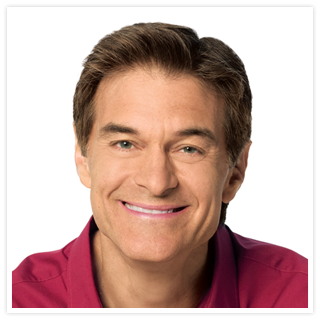Dr. Oz Speaks at University As Part of Mental Health Week


Dr. Mehmet Oz
Most fans of Dr. Mehmet Oz, the cardiothoracic surgeon-turned-television-personality, associate him with physical fitness rather than mental health. But the two are inextricably linked, he told an enthusiastic audience at Princeton University’s McCosh 50 last Thursday night.
Dr. Oz, who is on the faculty of Columbia University and directs the Cardiovascular Institute and Complementary Medicine Program at New York-Presbyterian Hospital, was the keynote speaker at the University’s observance of Mental Health Awareness Week. The lecture hall was packed with students as well as members of the general public. The talk was simulcast to five other sites on campus.
A celebrity since his first appearances on The Oprah Winfrey Show in 2004, Dr. Oz has had his own daily afternoon television program focused on health and medical information since 2009. His daughter, Daphne, graduated from Princeton in 2008, and a niece, who was in the audience, is currently a student at the University.
It is chronic stress, Dr. Oz believes, that is at the root of illness in this country. A natural reaction to stress is overeating, which causes obesity, which in turn contributes to diabetes, cancer, heart disease, and other life-threatening conditions. “When I see fat guys, the first thing I think of is that they’re not able to cope with stress the way they should,” Dr. Oz said. Stress is a fact of life, he added. “You can’t leave stress. But you want to cope with stress differently.”
After recommending five ways to control how long and well we live — managing blood pressure, avoiding cigarettes and toxins, exercising 30 minutes a day, adopting a healthy diet that is easy to follow, and controlling stress — Dr. Oz demonstrated the right way to breathe, which is the opposite of the way most people inhale and exhale. Children do it correctly, he said, and athletes are taught to breathe the right way. “You can practice it,” he told the audience, sticking his stomach out while inhaling and pulling his stomach in while breathing out. “You can learn to do this.”
Aided by video clips and projections, Dr. Oz lamented the fact that 50 million people in the United States do not have health insurance. “We have to change this,” he said, after showing a segment from his television show about free clinics he and his staff have provided in such cities as Houston, Texas, where the rate of uninsured is highest. “You can’t have a wealthy country if you’re not a healthy country.”
Trim and fit himself, the 51-year-old Dr. Oz spent a portion of his presentation talking about weight. It is waist measurement, rather than weight, that really matters. “Your waist size should be half your height,” he said, demonstrating with graphics how belly fat “literally comes alive” when fed high fat, low-fiber foods. Conceding that it is harder for some people to manage weight, he said conventional diets don’t work. “Biology will always beat will power. There was never a time in humanity’s history when we wanted to lose weight, so your biology is never going to recognize you’re trying to do it on purpose,” he said.
Our bodies are programmed to overeat as a reaction to chronic stress, according to Dr. Oz. “One thousand years ago, there was only one primary stress cause. It was famine,” he added. “You eat food you want to eat because that’s what you do in a famine.” Eating a handful of nuts a half hour before a meal and eliminating sugary drinks are among the jump-starts he offered to adopting a successful regimen.
Sobering statistics about sleep deprivation and abuse of sleeping medications and the effects on health of anger and hostility were among other topics touched upon. But Dr. Oz stressed the importance of forgiveness of one’s self when plans go awry. “If you miss your turn, what does the GPS say? Does it berate you? It’s not a big deal,” he said. “Just make a U-turn. We all make mistakes, just get back on track.”
During a question-and-answer period, Dr. Oz got a rousing response when he was asked how he dealt with stress when he was an undergraduate at Harvard University. His one word answer: “Alcohol.” But he was quick to add that following his example wasn’t the best idea.
Dr. Oz’s final message was about having meaning in life. “What we lack the most today is connection,” he said. “Your heart needs a reason to keep beating, which is I think the most important lesson I have learned from my patients.”

